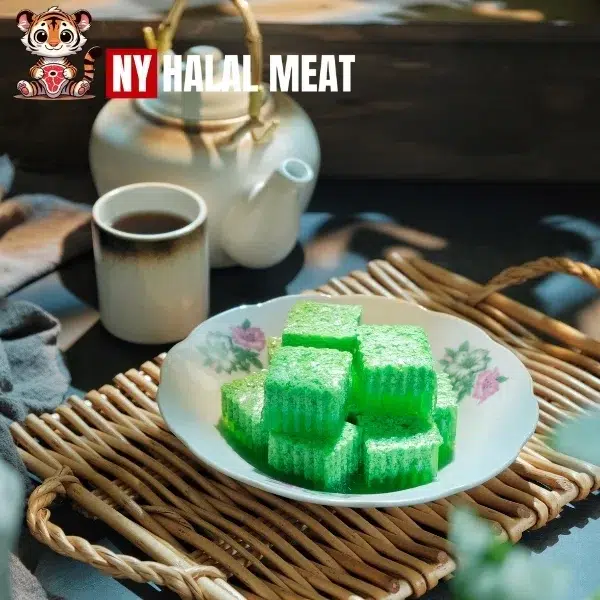Can Muslims Handle or Use Gelatin? Understanding Halal Gelatin and Alternatives
Gelatin is a widely used ingredient in food, cosmetics, and pharmaceuticals, but for Muslims, its permissibility is often a topic of concern. Since gelatin is derived from animal collagen, Muslims who follow halal dietary guidelines need to be cautious about its source. In this article, we’ll explore whether Muslims can use or handle gelatin, the concerns around its halal status, and possible alternatives.
What is Gelatin?
Gelatin is a colorless, tasteless, and odorless substance commonly used as a gelling agent in foods like jelly, marshmallows, candies, and desserts. It is made by boiling animal bones, skin, and connective tissue to extract collagen. The resulting gelatin is then processed into a powder or sheets.
Halal Concerns with Gelatin
Muslims are prohibited from consuming certain foods or ingredients that don’t comply with halal practices. The key issue with gelatin is that it is usually made from animal collagen, and depending on the animal source, it may or may not be halal. Here are the key factors to consider:
1. Animal Source of Gelatin
Pork-derived Gelatin: Gelatin from pigs is considered haram in Islam, as pork is strictly forbidden in the Quran. Any gelatin made from pig-derived collagen is not permissible for Muslims to use or consume.
Beef or Cow-derived Gelatin: Gelatin from cows can be permissible, but the animal must be slaughtered according to halal guidelines. If the slaughter process adheres to Islamic practices, then the gelatin is considered halal. However, if the animal was not slaughtered in accordance with Islamic law, the gelatin may not be permissible.
2. Halal Slaughter Process
For gelatin to be halal, it must be sourced from animals slaughtered by a Muslim who follows specific Islamic procedures. This includes invoking the name of God (Allah) before slaughtering and ensuring that the animal’s blood is properly drained. Only gelatin derived from such animals is acceptable.
3. Gelatin from Non-Halal Certified Sources
Even gelatin sourced from cows or chickens may not be halal unless it comes from a certified halal manufacturer. Cross-contamination with non-halal ingredients during production is a concern, so it’s essential to verify that the product is produced in a facility that adheres to halal standards.
Halal Gelatin Alternatives
Many Muslims prefer to avoid gelatin altogether due to concerns about its source. Fortunately, there are plant-based and halal alternatives available. Here are some common alternatives to gelatin:
1. Agar-Agar
Agar-agar is a gelatin substitute made from seaweed. It is a popular plant-based alternative that is widely used in food products like jelly and desserts. Agar-agar is completely halal since it is derived from plants, making it a great option for Muslims.
2. Pectin
Pectin is a naturally occurring substance found in fruits like apples and citrus. It is used as a gelling agent in jams and jellies and is halal-friendly since it comes from plant sources.
3. Carrageenan
Carrageenan is another plant-based alternative derived from seaweed. It is used in various food products as a thickener or gelling agent and is safe for Muslims to consume.
4. Konjac
Konjac is made from the root of a plant and is often used in foods like noodles and desserts. It can also be used as a gelling agent and is halal-certified, as it is plant-based.
5. Halal Gelatin
Some manufacturers produce gelatin that is certified halal. This gelatin is derived from animals slaughtered in accordance with Islamic law. If you’re looking for gelatin, be sure to look for a halal certification on the packaging.
How to Identify Halal Gelatin
When purchasing products that contain gelatin, it’s important to look for the following to ensure the gelatin is halal:
1. Halal Certification
Many products will display a halal certification logo on the packaging. This ensures the gelatin is sourced from halal animals and produced according to Islamic guidelines.
2. Ingredient List
If the product does not have a halal certification, carefully check the ingredient list. Gelatin made from pork or non-halal sources will typically be labeled as “pork gelatin” or “non-halal gelatin.”
3. Look for Plant-Based Options
If you’re unsure about the source of the gelatin, opt for products containing plant-based alternatives like agar-agar, pectin, or carrageenan.
4. Contact Manufacturers
If the gelatin source is unclear, you can always contact the manufacturer for more information regarding whether their gelatin is halal or sourced from halal-certified animals.
Conclusion

Whether Muslims can handle or use gelatin depends on its source. Gelatin made from pigs is strictly haram, while gelatin from cows or other animals can be halal if it comes from animals slaughtered in accordance with Islamic guidelines. Muslims can also opt for plant-based gelatin alternatives like agar-agar, pectin, and carrageenan, which are naturally halal. When shopping for products containing gelatin, always check for halal certification to ensure it complies with your dietary requirements.



[…] Gelatin can be consumed and used by Muslims, but it is essential to be mindful of its source. Gelatin made from pigs is prohibited in Islam, while gelatin from halal slaughtered animals is permissible. Additionally, plant-based alternatives like agar-agar, pectin, and carrageenan offer safe, halal-friendly options for those who want to avoid animal-based gelatin. […]